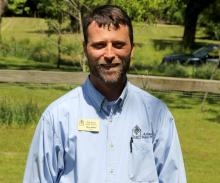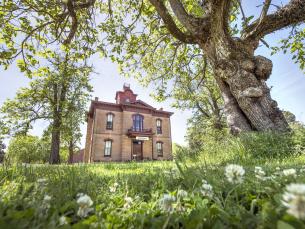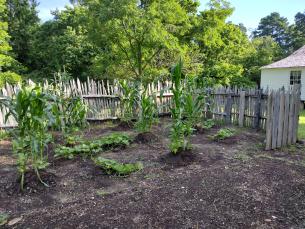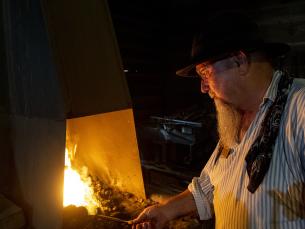
The 1840s Through The Eyes Of Nathan Smith
By: Chris AdamsIn the 1840s, Washington was a small but growing town, home to about 400 residents and 10 businesses. Prominent figures like Grandison Royston and Abraham Block had already established their roots in the area. Meanwhile, in what is now Grandview Prairie, Nathan Douglas Smith took a moment to reflect on the tranquility of life in Washington, Arkansas, as he sat by the fire with rain gently falling outside. With pen in hand, he decided to write to his sister in New York to share with her his good blessings.
Nathan Smith arrived in the area in 1819, marking a significant moment in the history of Washington. As the first college-educated doctor in the region, he brought with him a wealth of knowledge and the pioneering spirit to put down roots. Before settling in Washington, he spent time in New Orleans as a printer, a journey that laid the groundwork for his eventual move northward. This decision to plant his flag in Hempstead County would shape not only his life but also the lives of many others in the community until his death in 1867.
Throughout the years, Smith maintained correspondence with his sister and other family members, providing a glimpse into the challenges and successes of early settlers. His letters reveal a land that was once wild and untamed, transformed into a thriving community ripe with opportunity. The fertile soil and favorable climate of Hempstead County allowed Smith to cultivate a successful farming lifestyle. With 70 acres, he raised an array of vegetables and livestock, ensuring that his growing family had all they needed to thrive.
Just three miles from his home, the town of Washington blossomed into a bustling hub. The advent of steamboat navigation connected the area to distant markets, invigorating trade and commerce. As schools and churches formed, the educational and spiritual needs of the community were increasingly met. Smith's daughters, Harriet and Anne, attended a girls' academy in Washington that was representative of the educational advancements taking root in the area.
The Methodist Conference, with its 55 members, became one of the many religious congregations that would form. Smith's observations underscored the remarkable changes happening around him; what was once a remote and isolated territory was now a vibrant center of progress and civilization. The cotton industry flourished, with vast fields stretching for miles, their white blossoms reminiscent of fresh snow. Wealth poured into the hands of planters, with annual crop values soaring between $10,000 and $20,000. However, despite the developing prosperity, Nathan Smith chose a more modest lifestyle, finding contentment in simplicity rather than in the pursuit of wealth.
Beyond the rich soil and burgeoning economy, it was the spirit of the community that truly thrived. Ministers traveled through regularly, sharing the gospel, while merchants brought goods from across the nation. The early settlers’ struggles began to fade into memory as the area evolved into a place of stability and opportunity. The transformation from an unforgiving wilderness to a community grounded in hard work and mutual support was growing.
Hempstead County exemplified a landscape where honest labor was rewarded, where individuals willing to invest time and effort could reap the benefits. The land's richness, the climate's kindness, and the community's strength created a fertile environment.
growth. Yet, as the 1860s approached, Nathan Smith and his neighbors were poised to face challenges that would test the very fabric of this burgeoning society.
These challenges can be discovered at our “Town in Conflict” that happens on November 1 and 2, in Washington. Check the Calendar of Events for updates or call our Visitor Center at (870) 983-2684.




